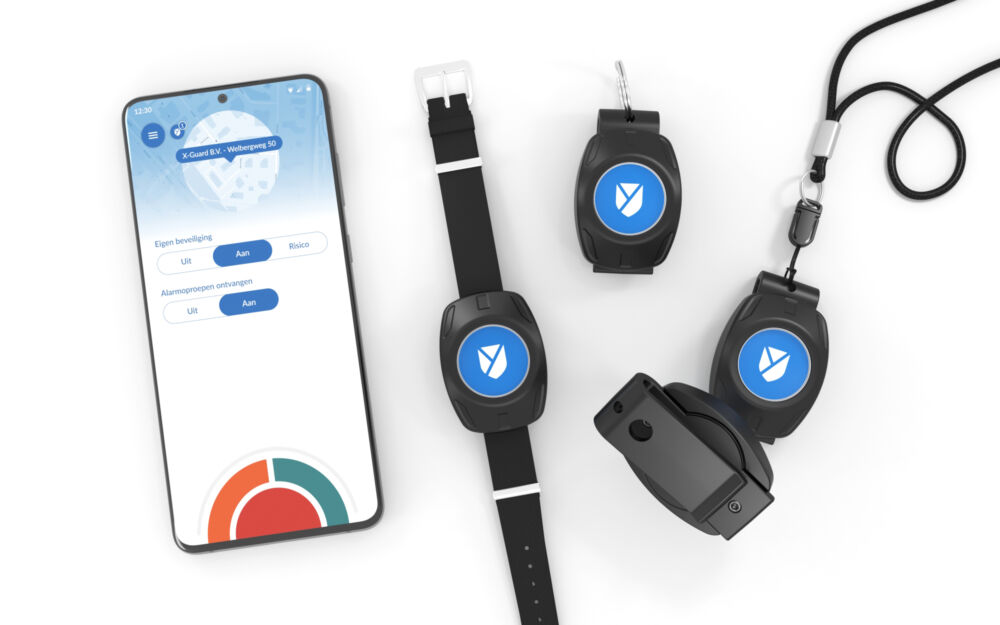COVID19 – increase in aggression in healthcare – a worrying trend
Aggression in healthcare
Frustration breeds aggression – also in the healthcare sector. A sector in which people work day in, day out, to ensure the health and safety of the Dutch population. To do this well, it is important to create the right conditions for everyone's health and safety. After all, working safely means working pleasantly, especially when an employee works alone or extramurally without immediate colleagues in the area.
Numbers
In healthcare, one in two employees experiences aggression during his or her work. This applies to a third of employees in all sectors. This is evident from figures from the Central Bureau of Statistics (CBS). Intimidation is the most common form of aggression at work.
Since the start of the corona pandemic and the measures taken by the government, frustration in the healthcare sector has increased considerably. 63% of healthcare workers experienced aggression from patients in the workplace in 2020 and 45% indicate that aggression has increased since the corona pandemic (Van der Palen, 2020). People are regularly threatened online or even visited at home. 20% of healthcare workers therefore feel unsafe at work. This increased aggression has a huge impact: 40% of healthcare workers have seen their own psychological health deteriorate since corona, mainly due to the increased aggression. It leads to stress, frustration and tension complaints (van Dijk, 2021)
Tackling aggression in healthcare
What do you do as an organization against aggression? Employers are obliged to protect their employees against all forms of aggression. The Working Conditions Act requires employers to draw up an aggression policy so that employees can do their work safely. The Social Affairs and Employment Inspectorate announced in July 2014 that 60% of healthcare institutions fail to tackle aggression. The shift from intramural to extramural care increases the risk of aggression for the employee: the risk assessment, procedures and measures must be adjusted accordingly (JWS, 2014). Organizations and companies can limit aggression and its consequences using a number of policy measures.
The X-Guard solution
One of the measures that a healthcare party can take is, for example, aggression training with the integration of a mobile alarm system. There are many training organizations that can prepare healthcare parties and their healthcare employees against aggression. Personal alarm systems are indispensable, especially when employees work alone as, for example, an outpatient care provider or bailiff. Alarm buttons contribute to a safer feeling: in the event of an emergency, help is quickly on the spot - whether this is colleagues, emergency response staff, a mobile invigilator or the police.
X-Guard offers a complete safety solution that ensures that healthcare employees can do their important work with a feeling of safety, especially in these times. By means of an app on their phone or a separate alarm button, including man-down and a risk function. We can also set up emergency response within a company or organization using our emergency response call button. If you would like to know more about the possibilities, please feel free to contact us. Together we ensure that your employees feel safe again.
Read more about:
Sources
Arbo (n.d.). Forms of aggression and violence: https://www.arboportaal.nl/onderwerpen/agressie-en-geweld/vormen-van-agressie-en-geweld
CBS/TNO (2011). Half of employees suffer from aggression at work: https://www.cbs.nl/nl-nl/nieuws/2012/29/helft-werknemers-zorg-heeft-te-maken-met-agressie-op-het-werk
SZW Inspectorate (July, 2014). Attention to workload in healthcare remains necessary
Van der Palen, F. (2020) Healthcare professionals experience even more aggression during the corona crisis
Van Dijk (June, 2021) Aggression in healthcare: https://www.knmg.nl/advies-richtlijnen/actualiteit-opinie/columns/column/agressie-in-de-zorg-1.htm

